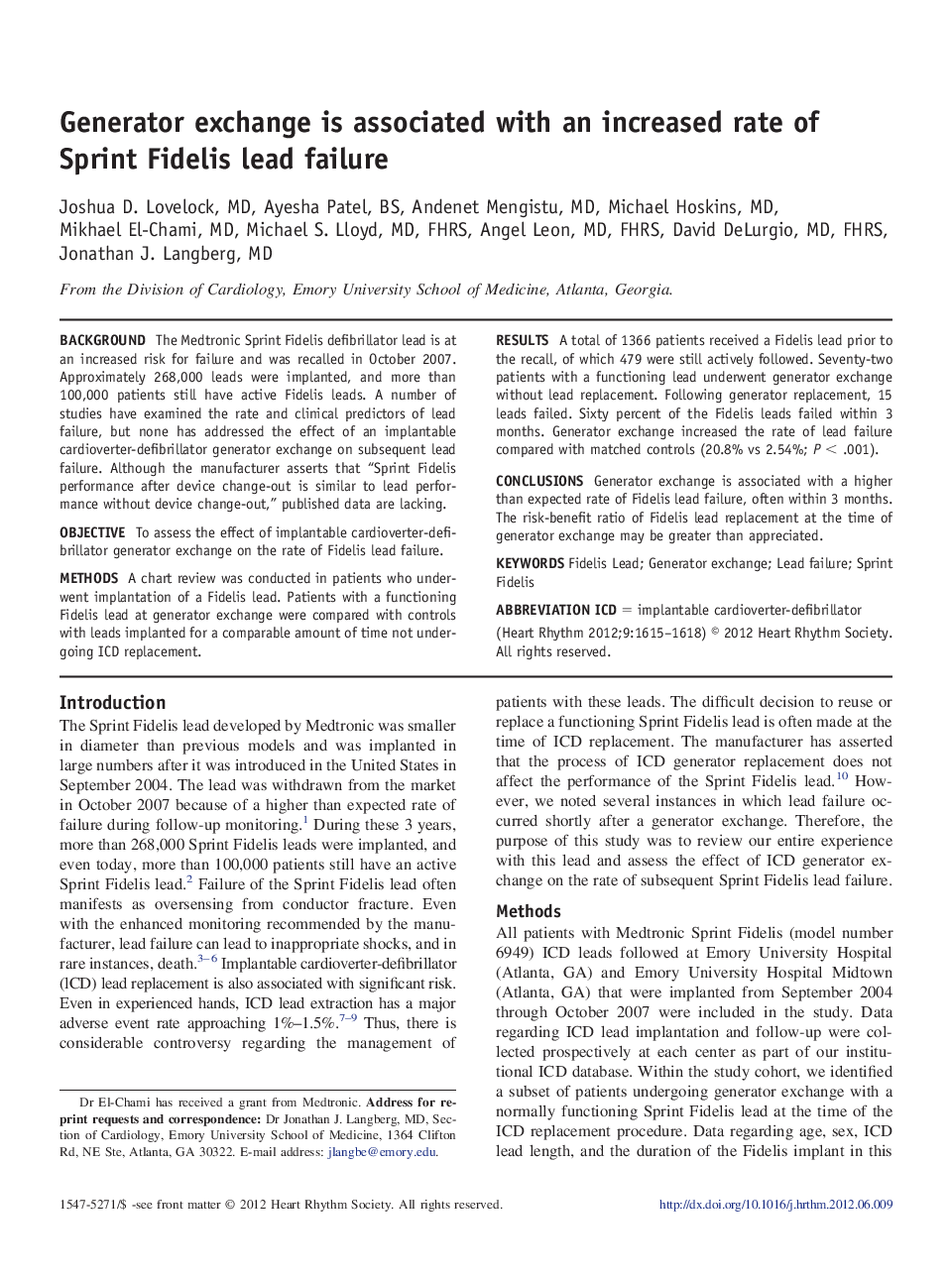| Article ID | Journal | Published Year | Pages | File Type |
|---|---|---|---|---|
| 2922601 | Heart Rhythm | 2012 | 4 Pages |
BackgroundThe Medtronic Sprint Fidelis defibrillator lead is at an increased risk for failure and was recalled in October 2007. Approximately 268,000 leads were implanted, and more than 100,000 patients still have active Fidelis leads. A number of studies have examined the rate and clinical predictors of lead failure, but none has addressed the effect of an implantable cardioverter-defibrillator generator exchange on subsequent lead failure. Although the manufacturer asserts that “Sprint Fidelis performance after device change-out is similar to lead performance without device change-out,” published data are lacking.ObjectiveTo assess the effect of implantable cardioverter-defibrillator generator exchange on the rate of Fidelis lead failure.MethodsA chart review was conducted in patients who underwent implantation of a Fidelis lead. Patients with a functioning Fidelis lead at generator exchange were compared with controls with leads implanted for a comparable amount of time not undergoing ICD replacement.ResultsA total of 1366 patients received a Fidelis lead prior to the recall, of which 479 were still actively followed. Seventy-two patients with a functioning lead underwent generator exchange without lead replacement. Following generator replacement, 15 leads failed. Sixty percent of the Fidelis leads failed within 3 months. Generator exchange increased the rate of lead failure compared with matched controls (20.8% vs 2.54%; P < .001).ConclusionsGenerator exchange is associated with a higher than expected rate of Fidelis lead failure, often within 3 months. The risk-benefit ratio of Fidelis lead replacement at the time of generator exchange may be greater than appreciated.
